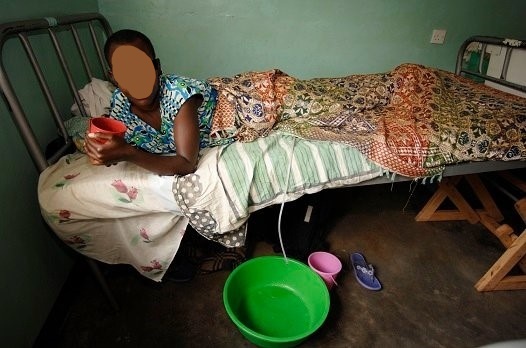Winnie just had a successful fistula 'repair' operation. Obstetric fistula is a hole in the birth canal caused by prolonged /obstructed labour due to lack of timely and quality medical intervention leading to a devastating injury (fistula) that leads to continuous leakage of urine or faeces or both.
For 20 years, Winnie had known no better life after she developed the fistula during child birth. The condition left her ruptured with a hole in the birth canal and passing urine uncontrollably. It also left her ashamed, ostracized and excluded from her community. "Life has been very difficult for me," she says. "But now, as I recover, I can smile again and I have hope that I will have a normal life again."
Winnie is just one of the hundreds of women across the country whose lives were changed after benefiting from free fistula „repairs‟ as Uganda commemorated the first-ever International Day to End Fistula on June 20. The inaugural day was proceeded by repair camps simultaneously going on in 14 national and regional referral hospitals across the country, organised by the government of Uganda in partnership with UNFPA and other partners.

The national celebrations were held in Soroti District under the theme 'End the Shame, End the Isolation, End Fistula'. UNFPA Uganda's Deputy Representative Cecile Compaore urged all to use the day to plan, discuss and commit to ending fistula by 'closing the tap' through enforcing preventive measures like family planning, skilled birth attendance and emergency obstetric care, equipping health facilities and availing competent and skilled personnel at all levels.
"This day is a landmark for us to translate our daily practices into actions that will ultimately reduce the currently unacceptably high levels of maternal and new born deaths and disabilities that result from causes that we all know are largely preventable, and whose remedies we are all capable of providing," Compaore said.
The Commissioner Clinical Services at the Ministry of Health, Dr. Jacinto Amandua revealed in his speech that the Government of Uganda has allocated US$ 340,000 (UGX 700,000 million) in the next financial year for treatment of the condition. He said the Ministry of Health, with support from UNFPA has also developed a National Obstetric Fistula Strategy to accelerate access to fistula prevention, treat-ment and rehabilitation services.
A National Fistula Technical Working Group has also been set up to coordinate and guide the work of fistula partners.

